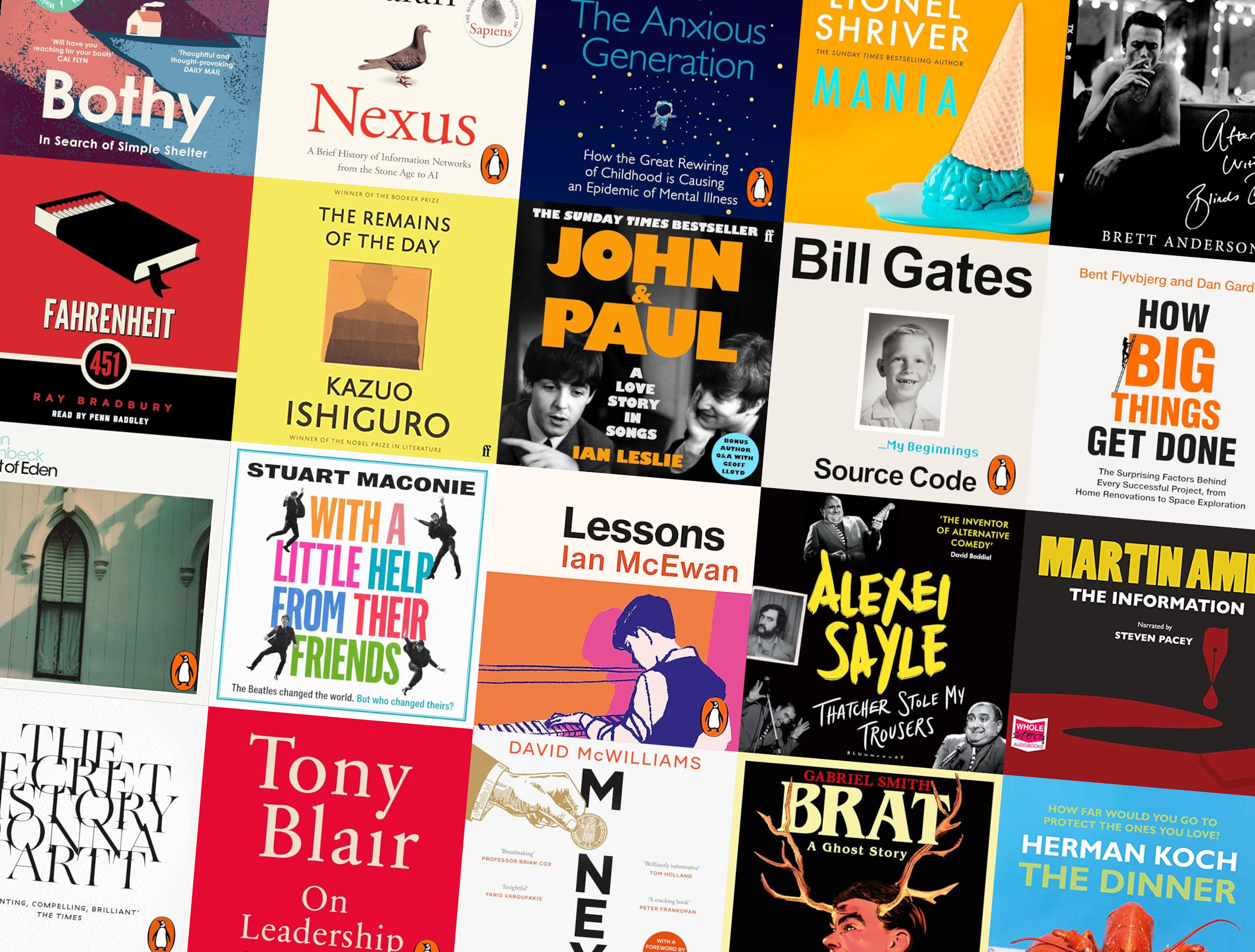
The Books I Most Enjoyed Reading in 2025
I was in two minds about whether to bother writing up my annual review of the books I most enjoyed this year. Then I saw a LinkedIn post from my erstwhile colleague Majd Yafi saying how much he enjoys these end‑of‑year reading round‑ups, and my wife added that they make me seem “more human”. That felt like reason enough, particularly in a year marked by an ever‑increasing tide of AI‑generated prose. ...
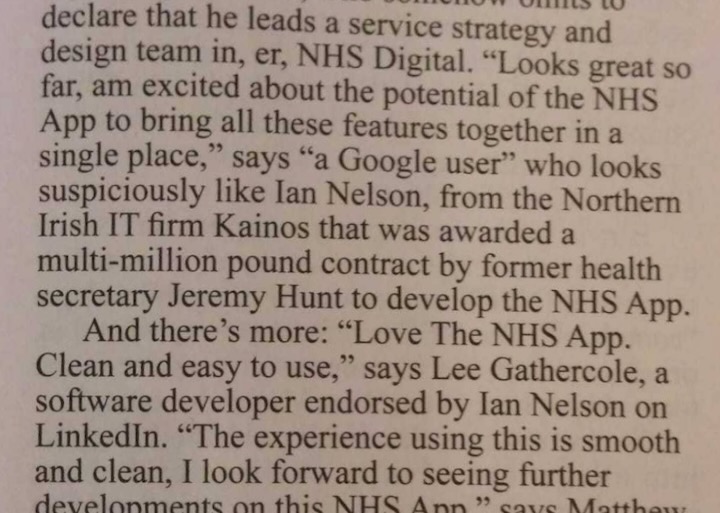
That Time I Ended Up In Private Eye
Back at the start of 2019, when the NHS App had just launched, it had something of a discoverability problem. The kind of problem where people would type “NHS App” into the App Store search bar and be presented with results including Microsoft Outlook, WhatsApp, Candy Crush and in fact pretty much anything but the NHS App. Not ideal for a flagship digital health intervention. I was contracting as part of the Kainos team helping NHS Digital deliver the App, alongside partners from BJSS. We’d toiled long and hard during 2018 to build a thing that could handle login, appointments, repeat prescriptions, medical record, and more. But what good is your lovingly crafted digital gateway to the NHS if nobody can find it? ...

Will DMN for Quiche: 269 Things To Do While In Between Contracts
Or: How I Learned to Stop Worrying and Embrace the Betweening When you’re in between contracts, it’s easy to feel like you’re stuck in limbo. Professionally adrift, spiritually buffering, half-dressed in last Thursday’s joggers. You refresh LinkedIn. You reword your bio again. You stare into the fridge like it’s about to make you an offer. Somewhere around day four, with no stand-ups to attend, no Jira tickets to nurture, and a growing sense that time had lost its formatting, I decided that the only rational move was to make a list of things to do. ...

Canned, Scrapped, and Never Released: My Greatest Non-Hits
I lost my contract this week. A narrowing of scope. A bit of internal restructuring. The kind of small shift that leaves no room for a tech lead who only joined the project a few months ago. It stings a bit, of course, but not in a way that surprises me any longer. I’ve been in the game long enough to know that not every project will cross the finish line and make it into production. Sometimes, it’s not even a matter of tripping before the ribbon, it’s that someone quietly packs away the course and decides that the race never needed to be run in the first place. ...

Available Soon: Hire Me Before Someone Else Does
My contract with NHS England has come to an abrupt end sooner than expected following a narrowing of focus within the Digital Prevention Services Portfolio. The team I was leading — designing and building components of a National Screening Platform — has been stood down. The work: making legacy health data interoperable and event-driven, surfacing screening journeys in the mighty NHS App, and integrating with ageing systems that only whispered their secrets under moonlight. Standard stuff. ...
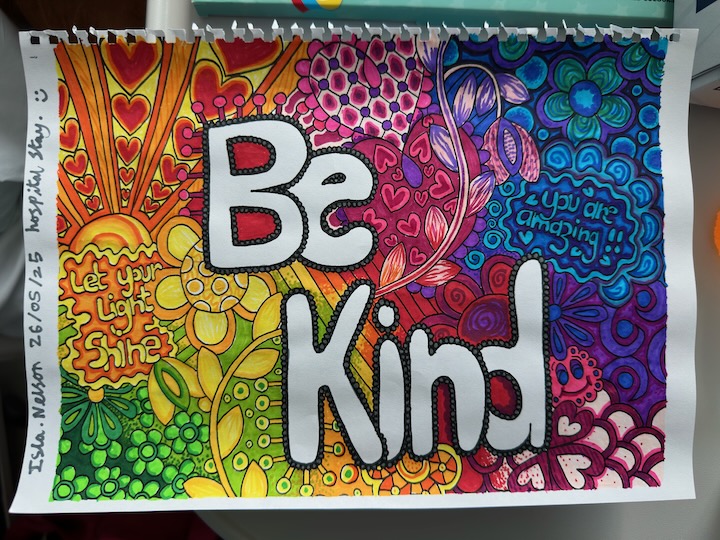
When the System Doesn't Work, You Become It: Scanned Notes from My Daughter's Hospital Bedside
In the early hours of Sunday morning, my daughter Isla was admitted to hospital with tonsillitis so severe she could no longer swallow. As a parent, it was a worrying time. As a tech lead working on national health infrastructure, it was quietly illuminating. I’m currently helping to build the National Screening Platform for NHS England — a set of systems designed to make the flow of patient data smoother, more interoperable, and ultimately more useful, hopefully leading to cost savings and better health outcomes for the country’s citizens. But this weekend, I wasn’t a developer or a technical architect. I was just a sleep-deprived dad, waiting anxiously by a bedside. ...
We Gave the TV to the Xbox
There’s no television in our shared family living areas any more. The imposing screen that once sat at the heart of the home, the altar of sofas and the focus of countless evenings, has been repurposed. It now lives in Matthew’s playroom, where it serves primarily as a large Xbox monitor. And you know what? I don’t miss it. Jocelyn and I just don’t seem to watch television these days. It’s not a moral stance or a lifestyle trend, it’s been more of a drift. A quiet migration away from passive consumption toward something else. ...

Goodbye Notebooks, Hello Digital Archive
Once upon a desk, there was always a notebook. In the older photos of my computer setups that I shared recently, charting the rise and fall of my monitor empire, you can usually spot a notebook or journal somewhere on the desk. Often it was a trusty Pukka Pad. Occasionally, when I was in my more self-consciously pretentious moods, it was a Moleskine or Leuchtturm 1917. Between 2017 and 2023 it tended to be a Self Journal, as I had been lured by their science-backed system. These were always nearby, always half-full of scribbled goals, tasks, reflections, and random facts and figures about my day. ...
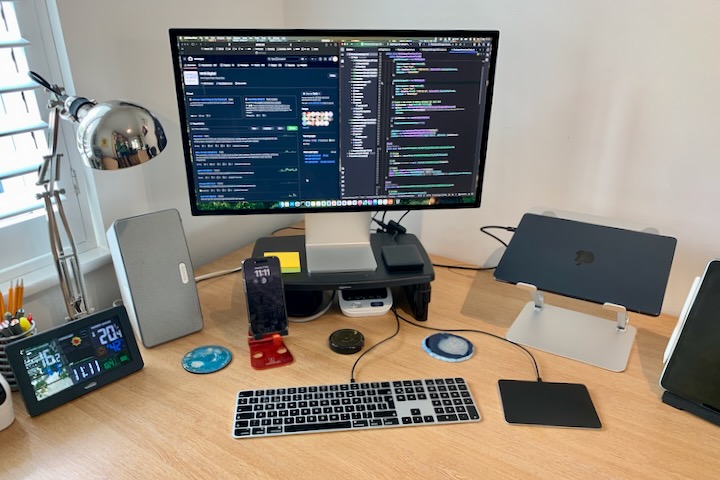
From One Monitor to Five, and Back Again
There was a time, not so very long ago, when I firmly believed that my productivity was directly proportional to the number of screens on my desk. One screen? You’re a civilian. Two? Getting serious. Three? Welcome to the big leagues. Four? Now we’re talking. Five? You, sir, are a professional. Possibly even a Bond villain. For much of my adult life – from 1997 to 2022 — I was on a one-man mission to surround myself with glass rectangles. I wanted dashboards, terminals, Slack, Outlook, scrolling logs, live bond market charts, rolling 24-hour news, and maybe even some code all visible at once, like a NASA flight director minus the buzzcut and the cigarette. I told myself that it was efficient. That more screens meant more throughput. That toggling amounted to waste. ...
When the Team Starts Volunteering Demos, You Know You’re Doing Something Right
There are moments in the lifecycle of a project – quiet, almost undetectable ones – that act as inflection points. Not the big set-piece go-live days, with all the nervous Splunk-watching that entails. Not the kick-offs, not the design sign-offs. Just those little glimmers of “Oh, this is actually working.” One of those glimmers happened today. We’re a relatively new team, starting to build a new product, led by me – still only eight weeks into the role. ...
From WordPress to Hugo: A Return to Simpler Times
I know, I know, you’ve heard all this before. Once again Ian is migrating his blog from one platform to another. And yes, it’s true that I have spent more of my life converting my blog posts between different platforms and markup languages than I ever have actually writing the damn blog posts in the first place. There’s a certain pleasing symmetry to it. I began my blogging life in the late 1990s with nothing more than some hand-rolled HTML, a text editor, and a dial-up connection. Over the years I have moved my content over to various platforms: .Text, Community Server, WordPress (twice!), GraffitiCMS, Ghost, and now I find myself almost back where I began. ...
I'm on Goodreads Now
Since 2018 I’ve been reading far more than I used to. Partly that’s because my kids have grown older and don’t need quite as much of my time (though they still seem to need quite a lot of money). But it’s also thanks to Audible. I’ve been listening to audiobooks while I walk the dog, potter about the house, and commute — effectively turning previously “wasted” time into surprisingly rich reading hours. ...
London, I Apologise: An Unexpected Romance with the Capital
For most of my adult life, in a way typical of those of us from the North, I have disdained London. Too big. Too busy. Too smug. Too… London. I’ve long maintained that its gravitational pull distorts the rest of the country, and that one’s quality of life improves in direct proportion to one’s distance from Zone 1. And yet — I am beginning to suspect that, deep down, behind my carefully-curated facade, I really rather like it. ...

Who Reigns Supreme? Parsing Our WhatsApp Chat for Wordle Glory
Back in 2022, in a bid to outwit my mother in our daily Wordle battles, I wrote some C# code to explore optimal starting guesses. You can read about that experiment here. Fast forward two years, and my Wordle addiction is alive and well. The daily challenge remains as compelling as ever, but it’s the family WhatsApp group – where scores are shared, victories boasted, and failures commiserated – that adds an extra layer of fun. ...
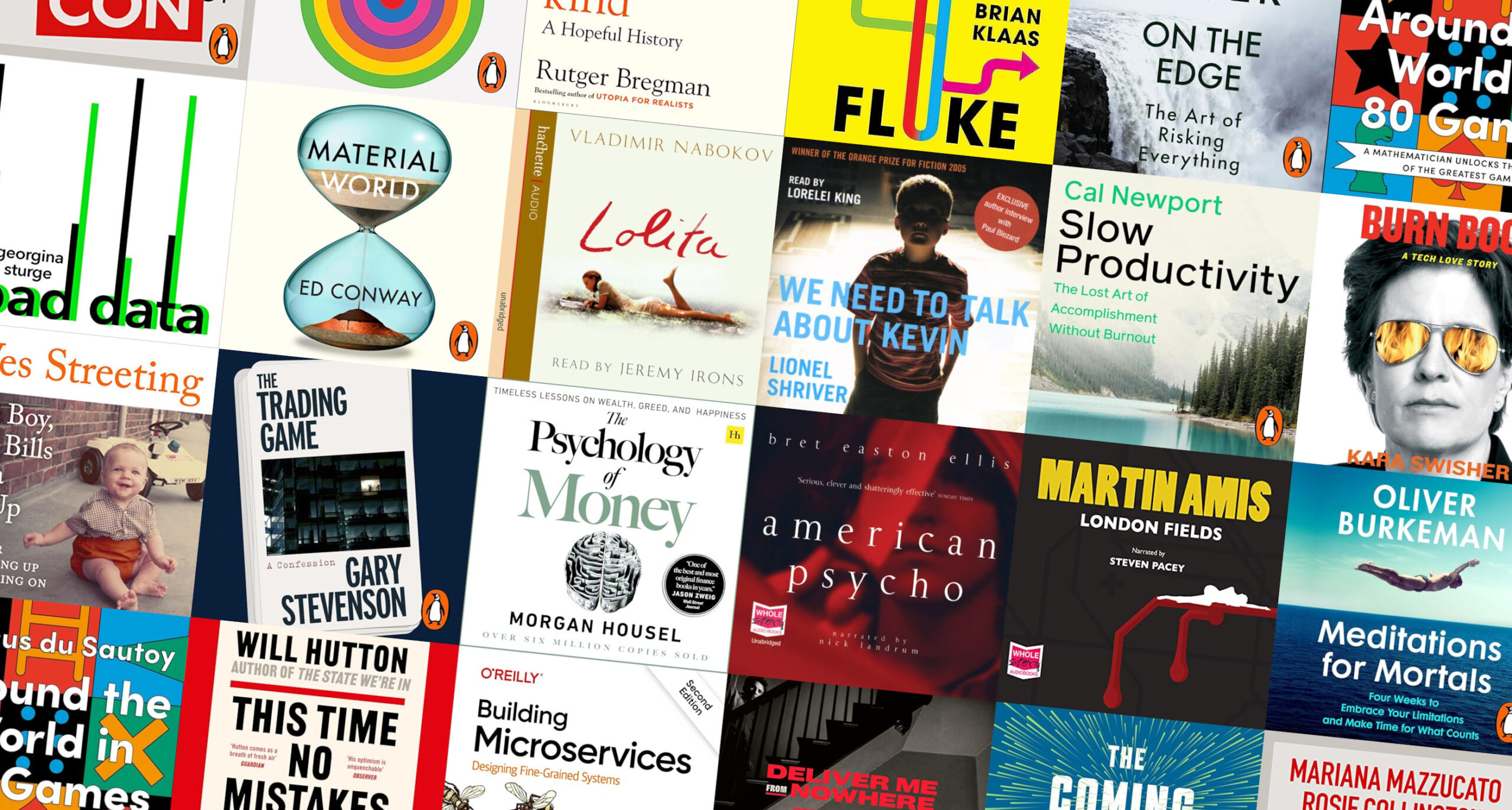
The Books I Most Enjoyed Reading in 2024
As 2024 draws to a close, I’ve taken some time to reflect on the books that made the greatest impact on me this year. From deep dives into technology and politics to introspective reads on life and risk, these are the titles that enriched my year – and might just enrich yours too. If you pressed me on the subject, I would say that my very favourite book of 2024 was Burn Book: A Tech Love Story by veteran tech journalist Kara Swisher. ...